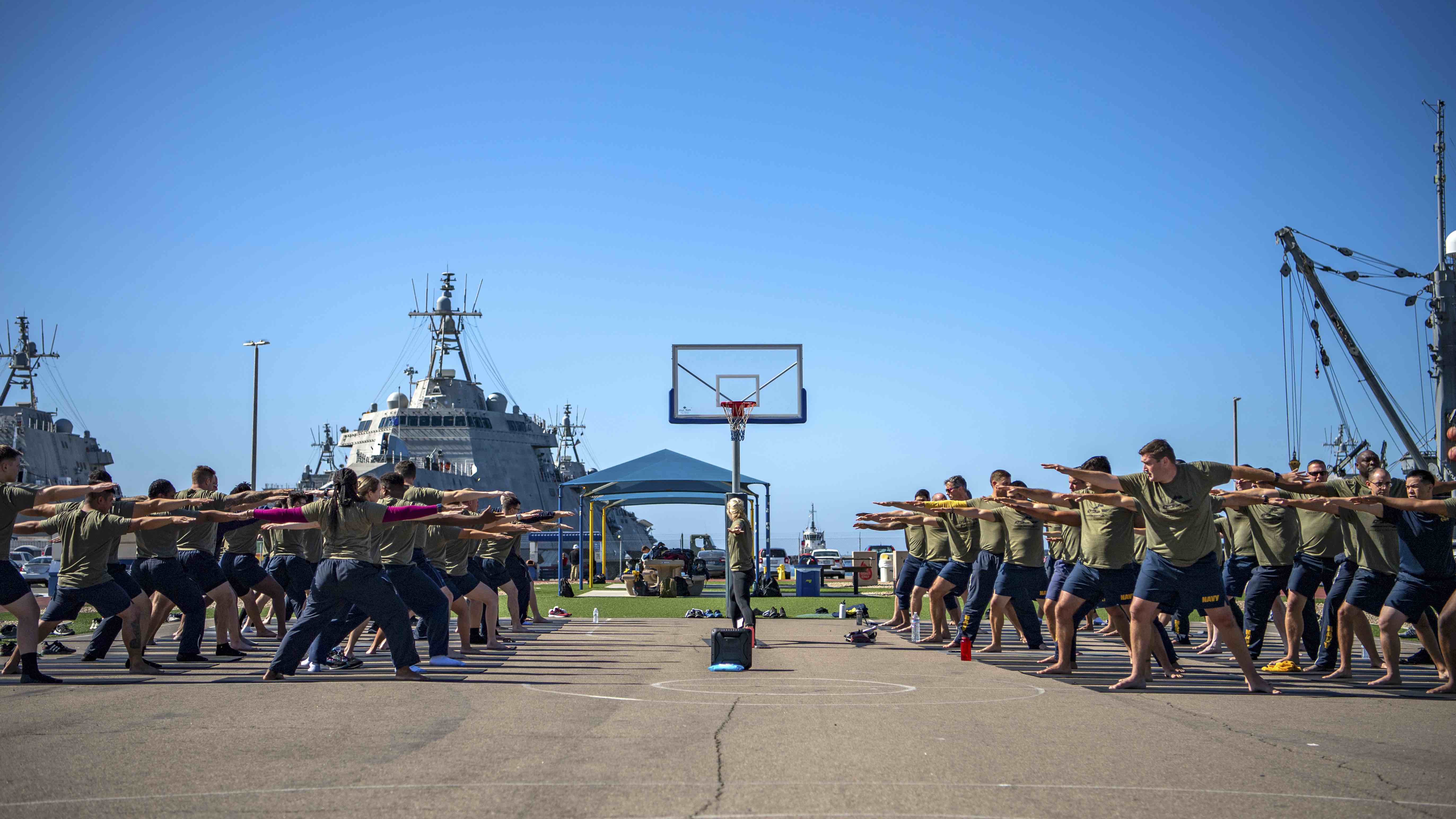
NAVAL BASE SAN DIEGO, Calif. – After completing a leadership course before taking command of a Littoral Combat Ship crew, Cmdr. Edison Rush knew that other sailors could benefit from what he learned about human performance, starting with his own crew.
Rush, who in April took command of USS Manchester (LCS-14) Blue crew, workshop into sleep, nutrition, stress, mental performance and resiliency while attending the prospective commander, executive officer course at Surface Warfare Officers School in Newport, R.I.
The workshop is taught by O2X, a “human performance training” firm co-founded by three former Navy SEALs. O2X has a two-year contract with Naval Surface Forces to provide the workshops at SWO School. The Scituate, Mass.,-based company works with 250 specialists with a wide range of expertise, including combat conditioning, nutrition, sleep science, performance psychology and yoga.
“They have an interesting mantra: Eat-sweat-thrive,” Rush said of O2X. “It correlates to, are you doing the nutrition right? Or can you adapt so that you’re getting what you need to fuel your body properly to be able to perform?”
Rush realized that what he learned during those workshop sessions and performance assessments could benefit others, including his own ship crew’s health and readiness. “How do you get that holistic wellness – the holistic readiness – moving in the right direction?” he said.
So for two days in mid-October, Manchester‘s Blue Crew gathered at the naval base for two days of classroom instructions and guided discussions and workouts, all focused on physical and mental wellness.
The seminar “is a building-block” toward Rush’s goals for the Blue crew, which amid the two-day course were preparing for the physical fitness assessment, their first in 18 months. His goals include developing good, healthy practices and “the health that’s really going to carry them throughout their lives,” he said.
Later this month, Manchester‘s Gold crew, which is wrapping up a shipyard maintenance period in San Diego, will attend the same two-day workshop.
“Some of the major themes we wanted the crew to take forward from the O2X Workshops was a baseline for good sleep hygiene, understanding how to more effectively manage personal fatigue, and better ways to look at their nutrition in a holistic manner,” Rush told USNI News last week. “In the follow-up conversations with the crew members that participated, those points are some of the major points resonating.”
“We focused throughout the workshop on providing opportunities for individual engagement with the sleep, nutrition and injury prevention subject matter experts,” he said, “and the ability to learn practical steps for the crew members to improve their sleep and readiness scores since establishing their baselines with the monitoring devices provided by the CREW study.”
Volunteers from both Manchester’s Blue and Gold crews are participating in the Crew Readiness, Endurance and Watchstanding study into fatigue, health and performance by the Naval Health Research Center team that’s tracking and studying several Surface Force ship crews. As part of that research, certain sleep and activity data is being collected from volunteers among a half-dozen ship crews that are wearing a sleep-tracking ring and wrist-worn sensors band, and syncing their data via an app on their smartphones.
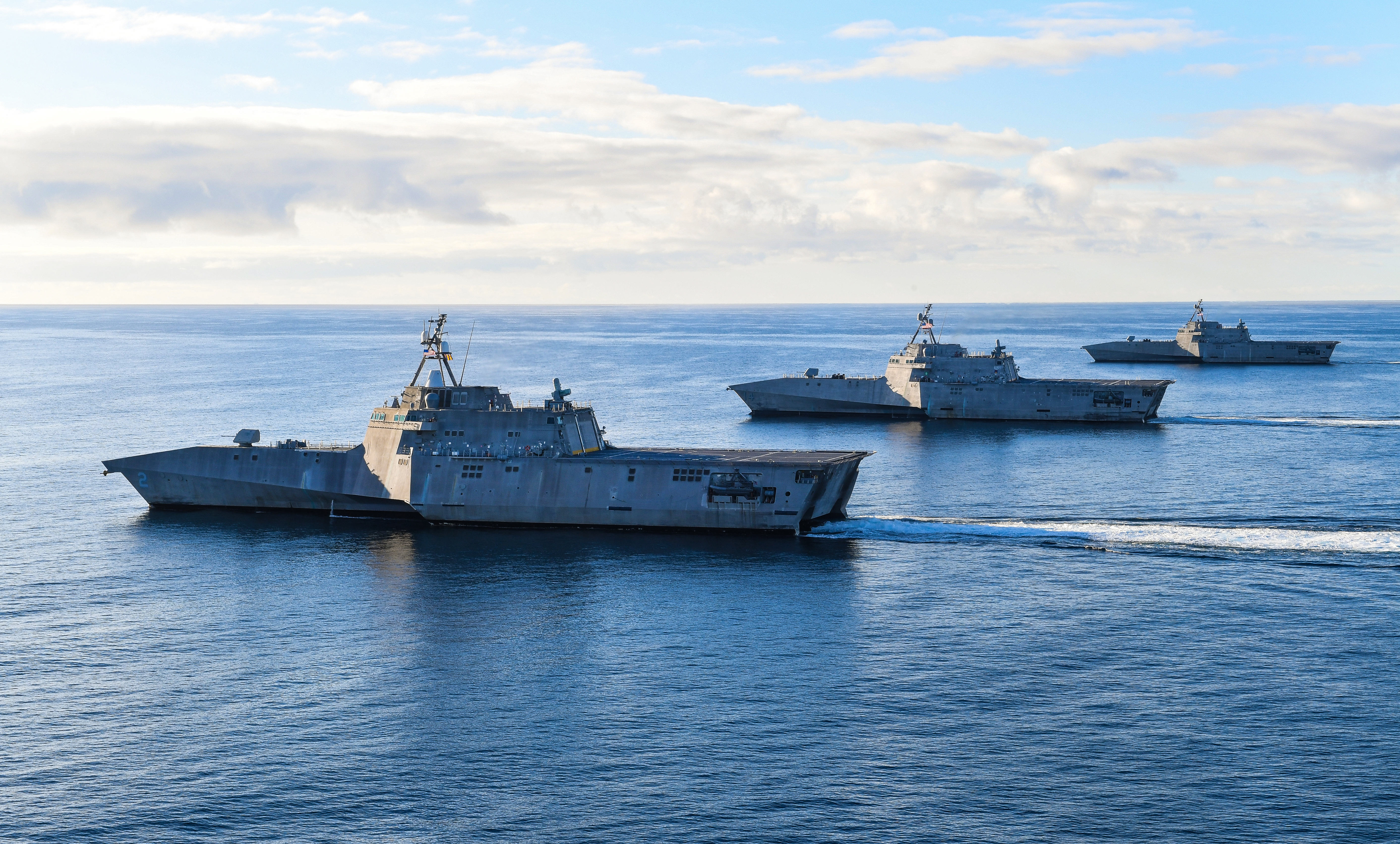
The workshops are part of what Rush and other leaders say is an important investment by the Navy’s surface forces in the broader health and performance of the fleet’s sailors. “It starts [with] one command at a time… to show them what right looks like. This is our command investing in you,” he said, noting he hopes sailors buy into the bigger picture of improving their individual and collective health and performance.
More so in recent years, the Navy has put a greater priority on a ship crew’s health and wellness. That’s been largely driven by the aftermath of the separate fatal 2017 collisions involving the destroyers USS Fitzgerald (DDG-62) and USS John S. McCain (DDG-56). Investigations blamed errors by the ships’ crews, revealed leaders failure and inadequate training and also found crews were overtaxed, fatigued and stressed.
Since then, a comprehensive review by the Navy led to expanded training for the fleet, and Naval Surface Forces issued changes to schedule duty watch sections and ship schedules that are more in line with the body’s natural circadian rhythm, especially when ships are operating at sea. There’s growing interest across the fleet – including human performance training that have been added to SWO leadership courses – focused on nutrition, fitness, stress and mental wellness on sailors that, ultimately, also impacts individual and crew operational readiness.
“What they’re doing at SWOS is trickling down, because we’re hearing about it from some of the XOs now and the COs interested in sharing that knowledge with their crews,” said Rachel Markwald, an NHRC research physiologist in San Diego who has been visiting ships for the ongoing CREW study. The ships include USS Essex (LHD-2), USS Higgins (DDG-76 ), USS Fitzgerald (DDG-62) and USS Mobile (LCS-26) for the study’s first phase, which will conclude with a comprehensive report to Naval Surface Forces.
Safety in the yards
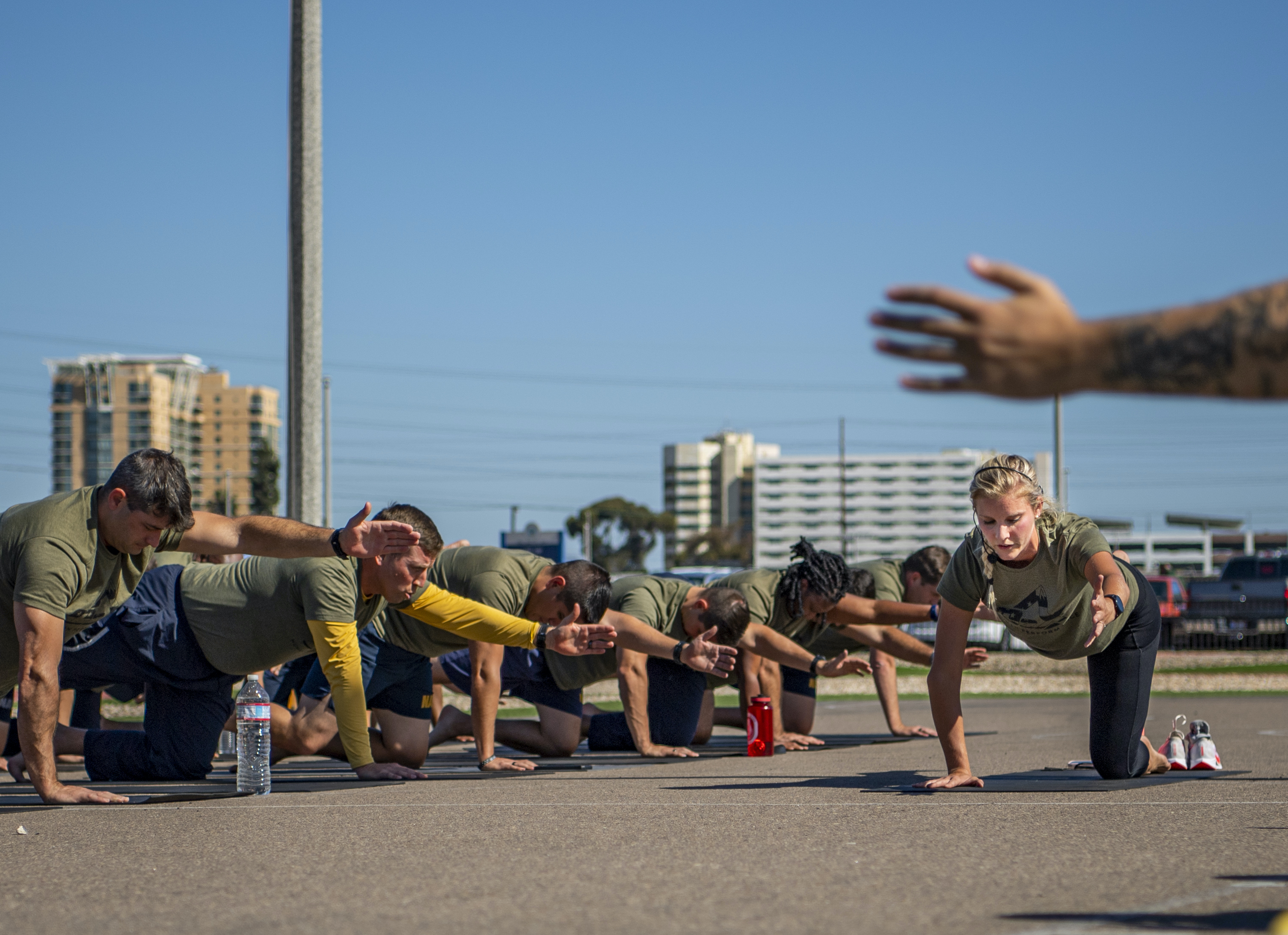
Rush said his recent year commanding a minesweeper in the Middle East made him realize that “if the right environment and climate is not set up, you’re going to have spurts of mental health concerns, you’re going to have spurts of injury,” mostly driven by fatigue’s toll on the crew and risking the crew’s overall success.
The mantra of O2X – be one percent better every day – reinforces a sailor’s ability to make small, incremental changes “that can have huge impacts,” he said. “It’s reinvigorating and really re-energizing the crew right before we go back into taking USS Manchester out of the shipyard.”
The Blue Crew is preparing to return to the ship and shift gears for training ahead of a scheduled deployment. While it’s a busy time, the ship’s two crew commanders carved out time for O2X’s two-day workshops so sailors could focus fully on the sessions.
Shipyard, like shipboard, environments pose risks of injuries like sprains and falls that could knock someone out of commission. That’s a high cost for a small ship like an LCS. “You only have 70 personnel. Every sailor counts,” he said. “Every sailor matters… and you can’t lose one (or) it’s going to put [a] load on others.”
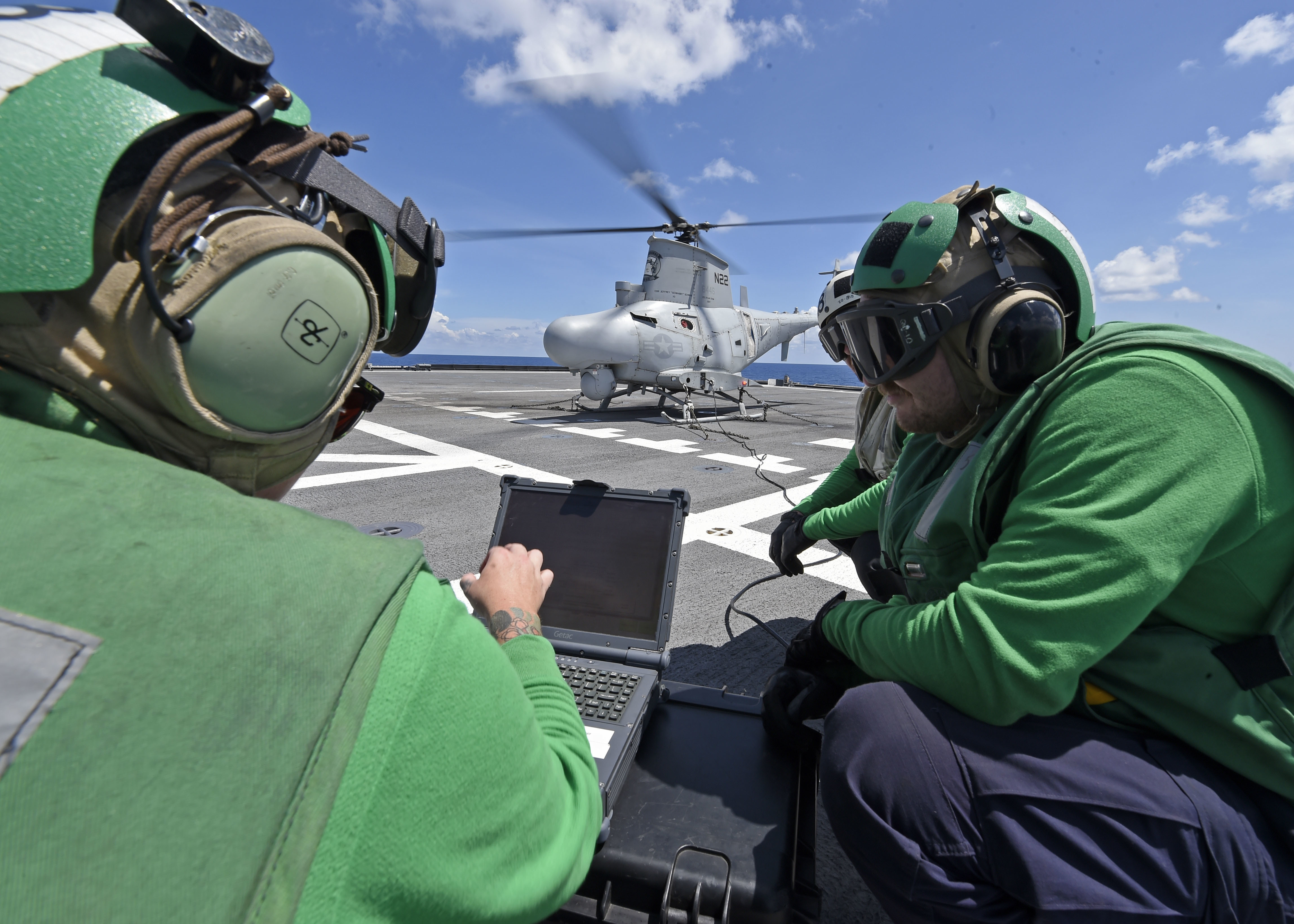
The workshop included conditioning and injury prevention, whether from off-duty play or on-the-job work, and conditioning like dynamic workouts, warm-ups and stretching, along with exercises for the more limited environment aboard a ship that won’t add more risk of injury. “We’re dealing with a very highly industrial period where it’s very taxing on the sailor,” Rush said. “We wanted to make sure we’re getting the full picture of what is their readiness, because you’ve got to be careful about endurance.”
Blue Crew sailors learned ways to get into better shape and prevent injuries from Rachel Oden, O2X’s injury prevention specialist and a retired Navy physical therapist. “You can’t control [that] your ship is in the yard, but you can control how you prepare for that environment,” said Oden, as sailors stretched during an outdoor yoga session along the waterfront at Bainbridge Park.
Oden said that to get the point across to sailors, she drew parallels with the importance of maintaining shipboard equipment. If something breaks down, “they start trouble-shooting,” she said, “so if your body starts breaking down, you need to start troubleshooting and figure out why. And work on the correction of the why.”
“What happens if you get hurt, at work or at recreation?” she added. “It takes you off primary duty, which means your shipmate has to take up the slack. So it’s kind of being a team player in that aspect as well.”
Tools for Good Habits
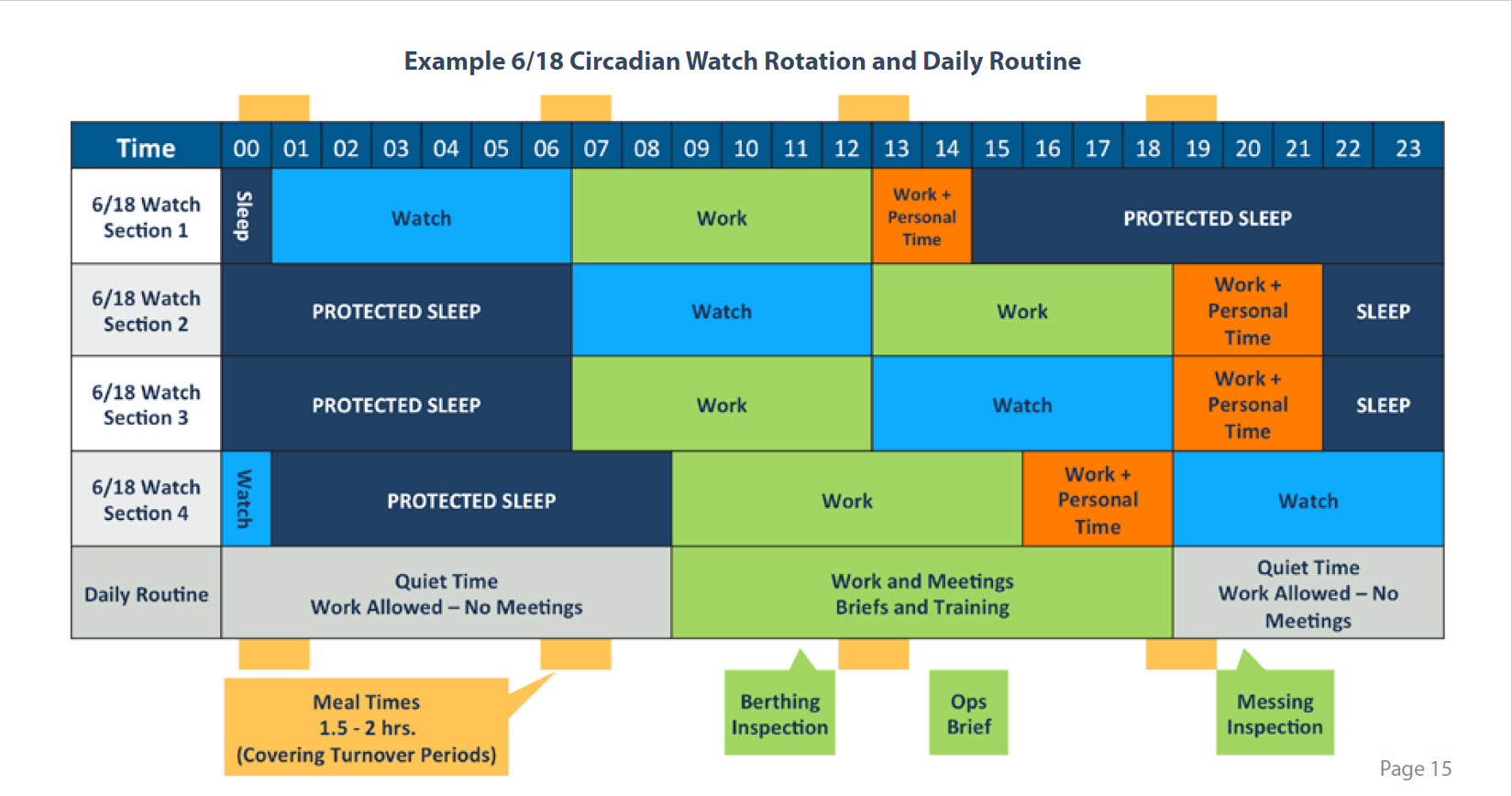
Manchester leaders hope the sessions spur sailors to develop the right habits to reduce fatigue, ease stress, promote good nutrition and improve mental focus and work performance. “It’s trying to give them more tools in the tool bag,” Rush said. “You have to normalize the conversation.”
That includes honest talk about sleep, naps and healthier food choices. “We need to start saying that sleep is a tactical measure,” he said. “How do we deal when our bodies are not in a circadian rhythm? What are good habits that we can develop to ensure that we’re not all fatigued… and how do you inform those choices for sailors?”
“The end-state is how do we create the right mental health as well?” he added. That includes giving sailors “the confidence and trust that if they need to get help, we’re going to support them getting that.”
Cmdr. Ralph Lufkin, the Blue Crew executive officer, said “it’s not just leadership. We really are thinking about it as a team” in how they structure watches and mealtimes more in line with circadian rhythms.
Moreover, Lufkin said, it’s important for the crew to understand “the ‘why’ behind it. If the entire crew knows that, then it makes it a lot more effective, with everyone realizing what we’re there to accomplish.”
For the workshop, Manchester’s crew got the book, Human Performance for Tactical Athletes, that expands on the workshop sessions and tracked their physical performance using a smartphone app. Everyone got a one-year subscription – fully paid by the ship’s command, Rush said – and were encouraged to keep tracking their progress.
“We don’t want them to forget this in one week,” said Ramone Resop, an independent duty corpsman who recently retired from the Navy and is O2X’s West Coast business development manager.
“Prioritizing sleep. It’s difficult with our ship’s schedule and duty and everything we do, but there is a way,” Resop told sailors during a session on mental performance. Sailors also need to recognize the often-missed signs of stress. For him, he said, it was a cracked molar from clenching his jaw, “the eye-opener the dentist brought to my attention.”
“When you know your warning signs, you can do something to change it,” Neva Barno, a O2X mental performance specialist, told them. Along with imagery and visualization, breathing and meditation help calm nerves, slow down the heart rate, ease anxiety and clear one’s focus. “Low and slow,” Barno said while leading them though a breathing drill.
“It’s supposed to be relaxing.”
Such breathing drills should be done daily, anywhere. Consider it “a reset button,” she said.
Improving Performance
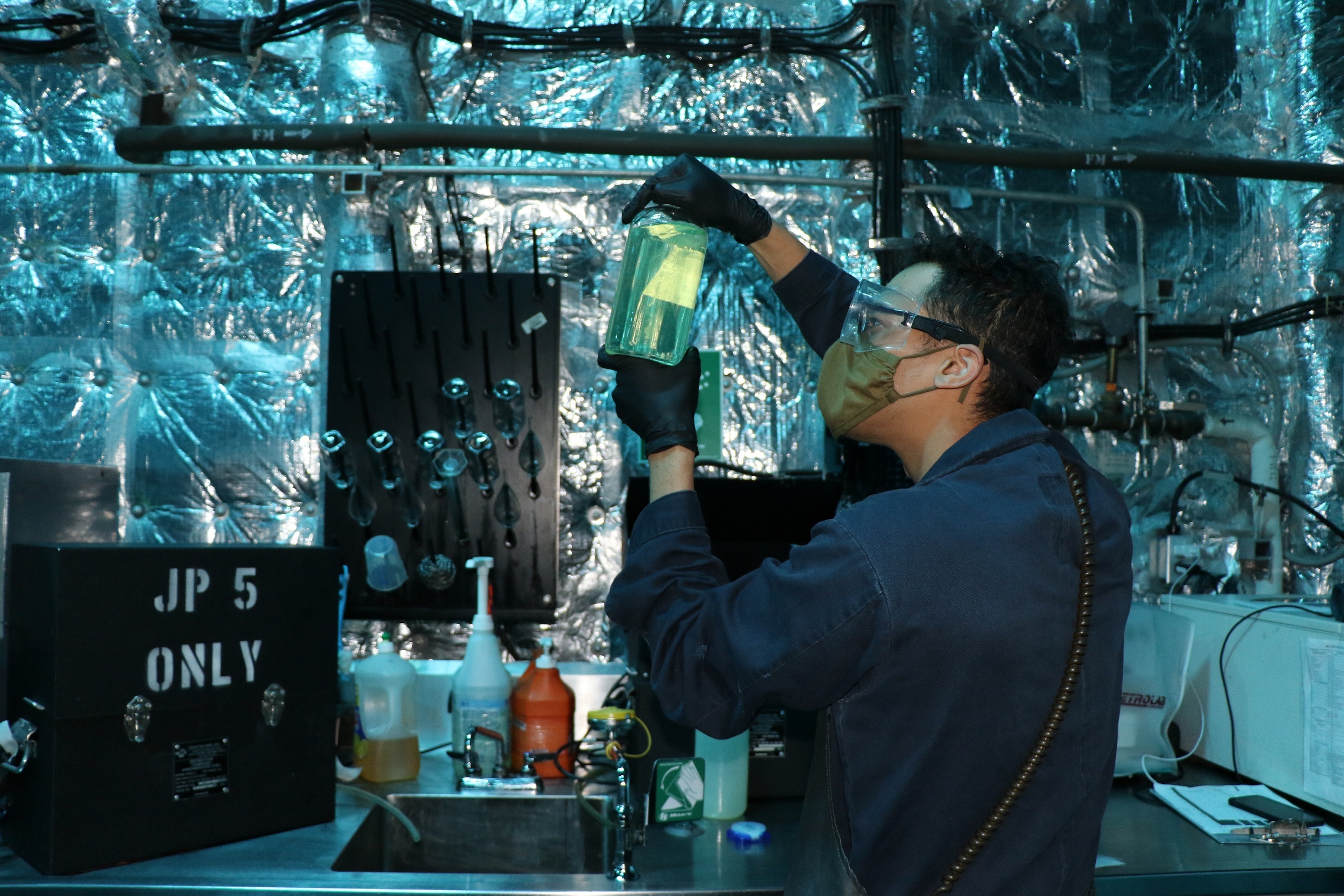
Even before they attended the workshop, some Manchester sailors volunteering in the CREW study were making small changes to their exercise or eating habits.
“I was running at night, and my sleep was kind of messed up. I figured if I run more in the morning, I’d sleep better,” Logistics Specialist 1st Class Scott Buraus told USNI News. The switch to morning runs “has a positive impact. You also feel better, too. I feel like just more energy and not as sleepy throughout the day.”
The O2X workshop reinforced the importance of sleep and rest to Buraus, the watchbill coordinator for his duty section. “If I see someone is looking tired, I could maybe change the watch they have, maybe swap it out with somebody so they can get some rest,” he said. And the addition of high-intensity exercise into their regular PT sessions “I think will be very beneficial.”
“I think this is pretty cool to do as a crew before we go back on hull,” he added.
Engineman 1st Class Petty Officer Oscar Quiroz is in the midst of intermittent fasting as he works to drop weight to meet the Navy’s weight and body fat standards, and he was motivated as he listened to instructors talk about nutrition, sleep and stress relief. “I love that they’re not ‘death by PowerPoint.” They actually go in-depth,” Quiroz said.
Recently, he began running with a first-class petty officer group, reaching up to three miles daily before illness knocked him down, but he’s intent on resuming it. “I’m more concerned about losing the fat, because I’m going to gain weight because of the muscle,” he said.
The workshop’s sessions will help him be a better sailor, Quiroz said. “I’m hoping I take a thing or two from here, learn it, put it into my life.”
He said he’s more mindful of how he’s doing. “Anything to help me better myself, I’ll take it,” he said. “This actually shows, too, that the Navy cares,” he added. I think doing little things like this – trying to help the sailor, help change them – says that we actually care about you and we want you to be better.”





